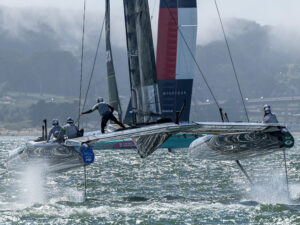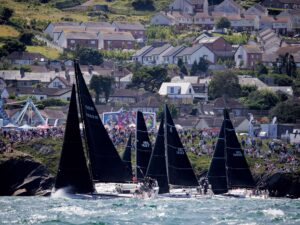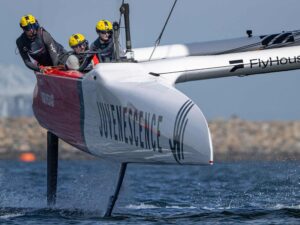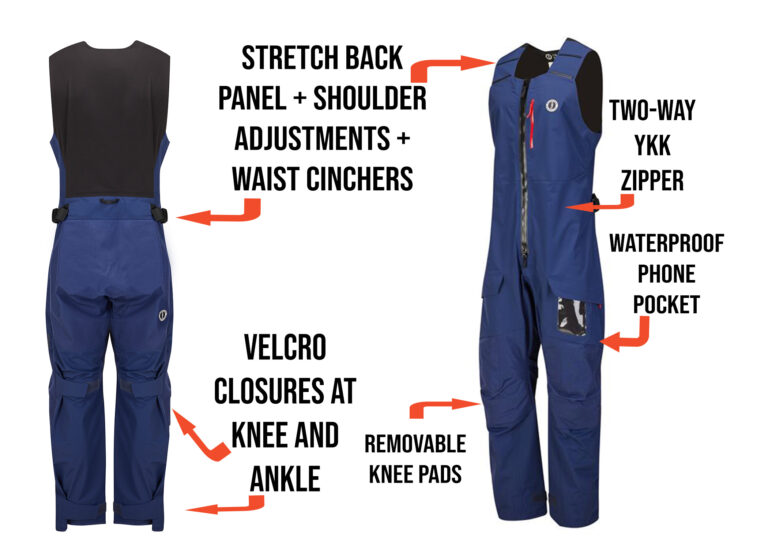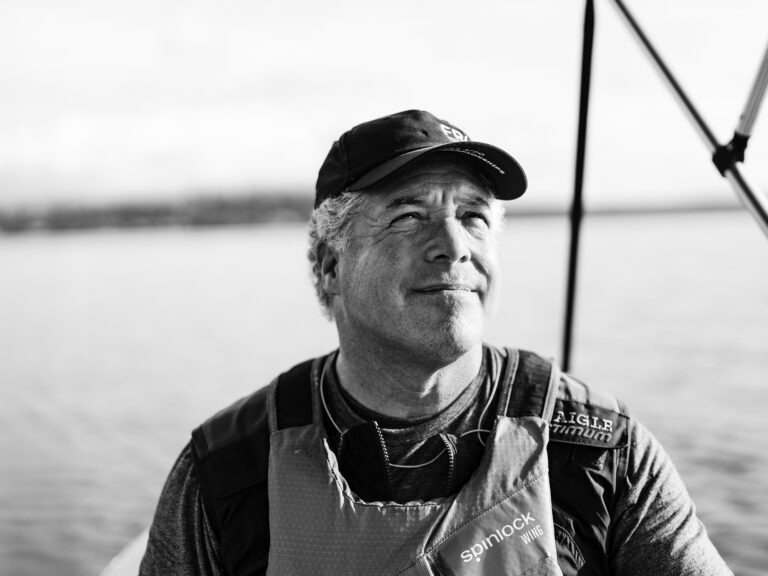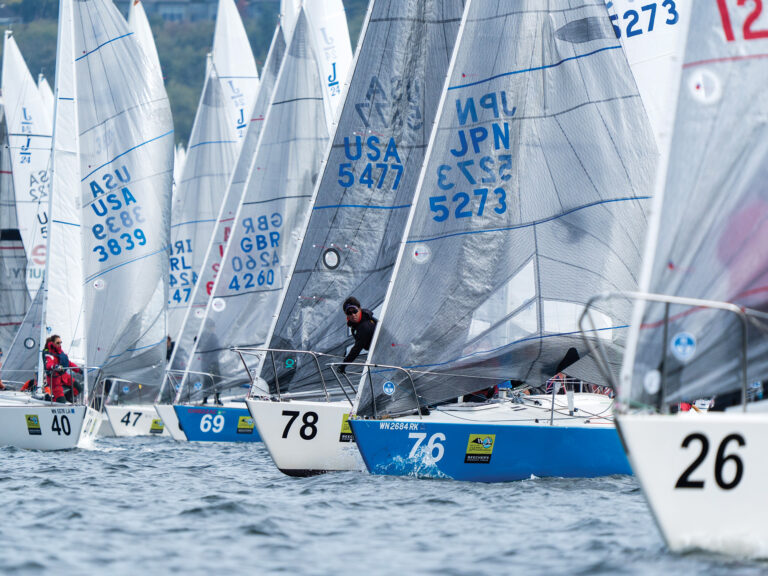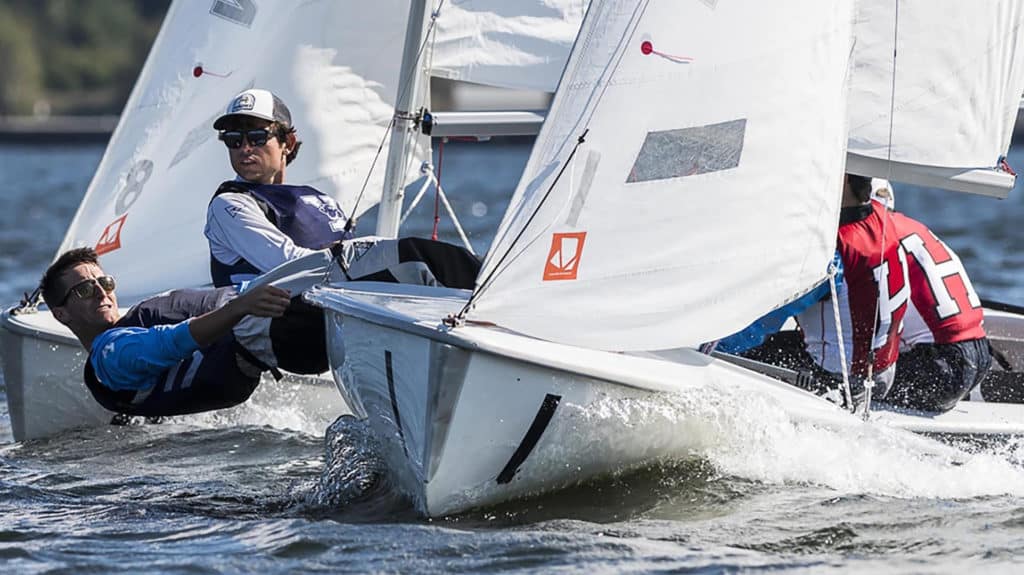
The 2021 college sailing fall season is now complete and our third installment of the Sailing World ICSA College Sailing rankings provides a glimpse of what to watch for when competition resumes in the spring. The rankings are largely compiled from the competitive doublehanded sailing events throughout the country, while the nationally-recognized singlehanded and match racing events are also weighed. It’s been a while since we had a full season with the full list of teams competing, and it’s clear we missed having some of the top college teams at the biggest events.
New to the mix this year is the inception of the competitive selection ranking (CSR), not to be confused with the Sailing World Rankings. The competitive ranking is a national selection tool, but it will take time for all teams to reach the regatta threshold and be ranked appropriately in that system. The rankings released by Sailing World here serve as the official ICSA National Rankings.
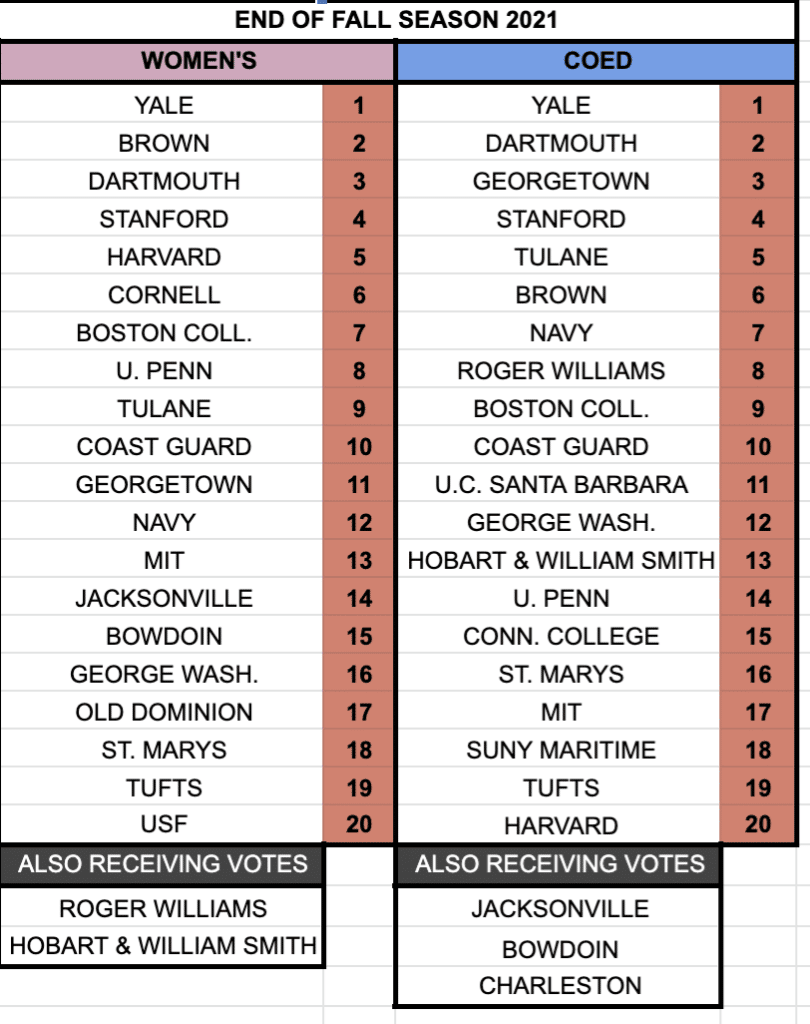
The fall season consists of three segments beginning with strict, inter-conference competition only throughout the month of September. While this limits the necessity for longer travel trips, it also provides a more thoughtful approach into what eventually becomes a far more competitive field of teams competing in the second phase, which features the Atlantic Coast Championship (ACC) ladder events.
In total, 36 teams are selected to participate in the ACC events in coed and women’s competition. There are two semi-final qualifying events from which the top-nine teams from each move into the ACC Finals for both disciplines. This creates challenging regattas that mirror the spring national fleet racing championship format. Many teams in the ACC Finals are considered favorites to represent at Nationals, but time will tell and the spring season is a different beast. The season concludes with conference championships, Singlehanded National Championships for the ILCA 6 and ILCA 7, and the Match Race Nationals.
Yale displayed their dominance in the ICSA and came out firing on all cylinders after missing all of the previous year due to COVID. They demonstrated they are without question the No. 1 team across the board, winning both the ACC semi-finals and finals in coed and women’s competition. They capped it off with a win at the Match Race Nationals. Shawn Harvey led the team in the coed discipline and is the clear front-runner for College Sailor of the Year in coed competition. Harvey sailed best with Sonia Lingos-Utley when they won A division at the stacked ACC final. Look for this pair to be at the top of college sailing throughout the spring semester. Rounding out the Yale coed competition was a mixture of Teddy Nicolosi, Anisha Arcot, Catherine Webb, and Jack Egan (Match Race National Champion).
In coed competition we also saw a breakout performance from Dartmouth at the ACC Finals. Led by Boyd Bragg and Eloise Burn, second in A division, this team was nipping at the heels of Yale toward the end of the regatta. Maddie Hawkins, Jamie Paul, and Yumi Yashiyasu won B division and were steady throughout the racing. Georgetown’s Jack Reiter was the best coed skipper out of MAISA this fall, sailing with Anabelle Ayer and helping Georgetown round out the podium at the finals.
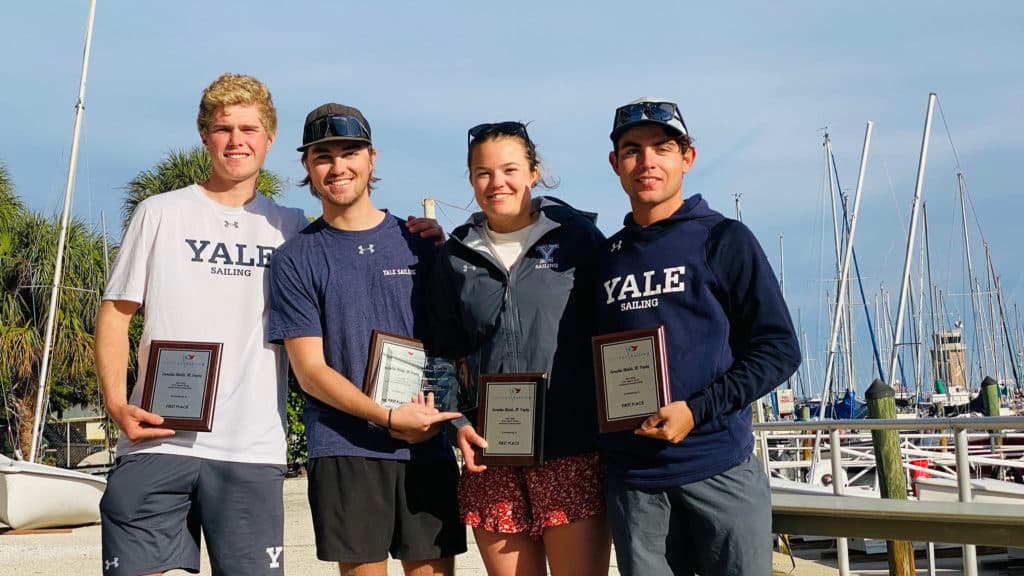
Stanford, Tulane and Navy had strong seasons of their own and are poised to make a run at the championships this spring. Stanford is led by skippers Jack Parkin (2020 Sailor of the Year) and Michelle Lahrkamp (2020 Women’s Sailor of the Year), along with their experienced crews Sammy Pickell and Patricia Gerli.
Tulane is no longer the new team on the block and after leading the competitive Danmark Trophy after Saturday’s racing they proved they can hang with anyone while performing at their best. Cameron Giblin, Andrea Riefkohl-Gonzalez, Asher Zittrer and Gillian Perrell represented the team at the ACC finals, and we’ll all be keeping an eye out for Tulane at their home venue later this year when they host the doublehanded national events. Navy is led by JC Hermus (2021 Sailor of the Year) and has as much experience racing at the top level as anyone. In addition, the midshipmen will look to Gray Benson, Kimmie Leonard, and Fiona Lobon as the primary favorites to lead the team in coed competition based on the fall season.
At the Women’s ACC events it was again all Yale led by Carmen Cowles, Mia Nicolosi, Emma Cowles, Meredith Ryan, Ximena Escobar and Helena Ware. It’s hard to believe they ground back and won the finals event hosted by Harvard on the Charles River. Dartmouth had a commanding and seemingly insurmountable lead after the first day and it looked as if that would be the story, but Yale thought differently and was consistent on Sunday to take the win with races to spare. Carmen finished in the top-two in A division throughout the fall and clearly demonstrated she’s ready in her first year of college competition. Throughout the season, B division was split between Nicolosi and Emma at the top events both showing that they can compete with the best. Yale will be the favorites heading into the spring season and rightfully so.
Dartmouth’s Maddie Hawkins is no one to mess with and also demonstrated that she’s one of if not the best in the field. She impressively won A division at the women’s ACC finals, and B Division at the coed finals. Her top finishes show she can compete with anyone at the highest level and will be a force this spring. Gray Hemens and Payton Thompson will look to take the B-division role, both having strong finishes this fall.
Brown is a perennial favorite to reach the podium, and they were unsurprisingly strong this fall finishing second overall at the ACC finals. Olivia Belda, Madeleine McGrath, Caroline Bayless, Nora Ong and Julia Reynolds led the team at that event and put themselves on the map for the spring competitions. They also finished second at their conference championship late in the fall season.
Tulane was led by Ciara Rodriguez-Horan and Caroline Benson and were ranked second in the country mid-year. While they stumbled at the finals, they’ll serve as host to the National Championship later in the spring and are a team to watch. Harvard was third at the finals with Emma Kaneti and Marleigh Belsley leading the charge showing they’re at the top of the women’s field. Stanford, led by Michelle Lahrkamp and Berta Puig, are far too talented to be overlooked in all of this, and they finished fourth at the finals. Cornell led women’s competition in MAISA, winning the doublehanded and the singlehanded conference championships. Brooke Shachoy, Lilly Myers, Bridget Green, Gabbi DelBello, Amelia Neumann and Jana Laurendeau played major roles this year at the top events. Penn’s Amanda Majernik, Sophia Segalla and Shaanti Choi-Bose and Navy’s Olivia de Olazarra sailed to impressive finishes throughout the fall as well.
Singlehanded Nationals were hosted in Annapolis by Severn Sailing Association in early November. Eighteen sailors were selected to compete in the two championship events from all over the country. In the ILCA 6 it was all Charlotte Rose from Jacksonville. Despite an early mistake resulting in a DSQ for the first race, she dominated the event and was deservedly crowned the National Champion for the second year in a row. She won nine of the fourteen races, many of them by a significant margin. Sophia Reineke from Boston College finished second and was the only other competitor in the field able to win a race. Sophia is also a two-time ICSA singlehanded national champion. Rounding out the podium was Cornell’s Lilly Myers. The conditions presented chilly temps in the low 50’s, but great winds to run a championship event. Congratulations to all the competitors, especially our podium finishers.
Leo Boucher, from St. Mary’s, won the ILCA 7 division and was the most consistent throughout the event. He took the lead overall in Race 3 and never looked back. His smart approach to the racing, his ability to avoid big mistakes and his expertise in the ILCA 7 proved to be too much for the rest of the competition. He won the event by 27 points and only had one race out of the top-four. He joins Rose and Reineke as a two-time winner of the ICSA singlehanded nationals. Finishing second was Chase Carraway from Hobart & William Smith. Early on in the event Carraway was the closest competitor to Boucher, but wasn’t able to overtake him on day two. Carraway held off the surging McCann brothers Ford (Georgetown) and Marshall (Miami) who have both finished on the podium at this event in the past, with Ford winning the event last year.
Match Race Nationals concluded the fall season in Tampa, Florida, sailing in J/70s with four-person teams. The race management was able to complete a full round robin followed by a semi-finals and finals. In the round robin it was Yale, Navy, Coast Guard and Georgetown advancing with the best records. The semi-finals were admirably contested and both went to the final race to determine the finals. Yale edged out Georgetown while Navy edged out Coast Guard to take the finals spots. In the finals we once again saw it go to the last race, and it was Yale that came out victorious, icing the cake of a stellar fall season. Jack Egan, Nicholas Davies, Megan Grimes, and Christophe Chaumont represented Yale at the event.
The spring season heats up in March with the team race interconference regattas in both women’s and coed racing. Between now and then you may see a few events in warmer climates as teams and sailors try to stay fresh. The spring nationals will feature women’s team racing for the first time officially, along with the usual coed & women’s fleet racing, and coed team racing championships.

